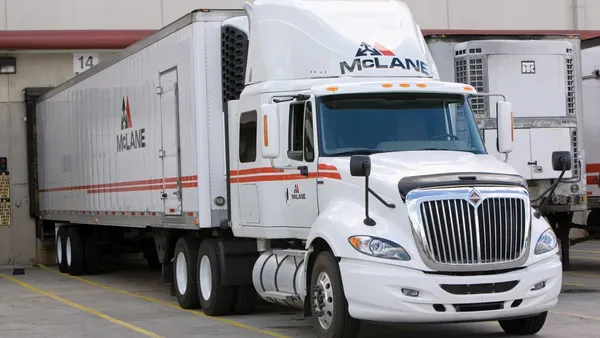Dive Brief:
- Mattress maker Casper continues to deal with a "challenged supply chain" due to prolonged material shortages as it works with third-party manufacturers to build up product levels, company executives said on a recent Q1 earnings call.
- During Q1, the company dealt with ongoing problems related to shortages of raw materials needed to make mattresses, but it was able to "effectively navigate" the issues by working with partners and moving production to outside manufacturers, CEO Philip Krim said on the call.
- One of the main obstacles industrywide throughout the pandemic continues to be a short supply of foam products to make mattresses and other furniture. But Krim said he believes that Casper has "largely sidestepped" the impacts of the shortage and expects the problem to be behind it later this year.
Dive Insight:
More than a year into the pandemic, mattress manufacturers are still battling material shortages and struggling to procure enough product to meet demand.
Casper's plan since Q3 2020 has been to lean on third-party manufacturers to overcome its material shortages. The company now said the plan is working, and it is currently building up supply and helping to secure foam chemicals, though Casper said it anticipates shortage impacts until later this year.
"But for now, we continue to work with all of our suppliers very closely and make sure that we're getting the goods that we're expecting and are largely able to fulfill the demand," Krim said.
La-Z-Boy has grappled with the same supply problem. And as it scrambled to increase production, a Texas winter storm stymied its efforts in February and slowed the retailer's efforts to mitigate its material shortages.
Casper reached a 20% revenue increase in North America compared to the same quarter last year. And as shortages lessen, the company is hoping to capture even more increases.
"As these shortages subside, we expect to capture more of the increased demand we are seeing in the market," Krim said, adding that its manufacturing base will be a "critical benefit" as sourcing improves long-term.
That manufacturing base will give Casper "pricing power" as the flow of supplies upticks, Krim said. While he mentioned the company's network of domestic manufacturers is expected to be enough to meet coming demand, he expects a need for and emergence of international manufacturers to increase production across the industry.
Overcoming sourcing issues can be tricky and plans are vulnerable to price increases, leading some companies to turn to technology to mitigate procurement challenges. That is what construction contractors are doing in an attempt to get around material shortages.
This story was first published in our weekly newsletter, Supply Chain Dive: Procurement. Sign up here.














